Recently, Scott Pack spent a couple of weekends reading novellas. IT sounded an interesting idea, and I had some time this weekend, so I thought I’d do the same. It did cross my mind that, having recently resolved to slow down and savour the books I read, I might be contradicting myself by now reading a small pile of books in a relatively short space of time – but actually I don’t think I was. If (as I’ve said elsewhere) a novel is like a journey and a short story is more like an intense moment of experience, then a novella is perhaps somewhere between – a sustained period of heightened experience. If I made sure that this wasn’t about reading as many books as I could, but about selecting a few and taking the time and space to appreciate them properly, there was no reason it couldn’t work.
I looked on my shelves for novellas, but also borrowed a few from the library, as I wanted there to be an element of uncertainty to the selection. The one change from my plan was that I read only six novellas, rather than the seven I had lined up – in the event, seven felt like overdoing it; six was a nice round number, manageable in the time, and still a pretty substantial amount to get through.
So, here’s what I read at the weekend (some of these may be too long or too short to count as true novellas, but hey-ho):
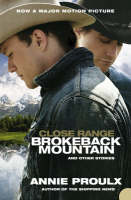 Annie Proulx, Brokeback Mountain (1997)
Annie Proulx, Brokeback Mountain (1997)
Originally published in the New Yorker, then later released as a separate book (interestingly, several years before the film – which I haven’t seen, by the way). Ennis del Mar and Jack Twist meet as young ranch hands in 1963; while working and camping together on Brokeback Mountain, they become intimate; and their feelings for each other will haunt the rest of their lives. Brokeback Mountain is a fine example of short fiction’s ability to distil entire lives into a few pages; indeed, part of the point is that Ennis’ and Jack’s lives have been defined by a few incidents. The problem is, I never really believed in their attraction: it comes on abruptly and, for me at least, never gains the emotional weight that it needs. Now, I recognise that this could be Proulx’s point: that the two men don’t examine their desire for each other, but just accept that it’s there; and at least one of them wants to keep it at a distance, so that’s reflected in the tone of the writing. But even with that thought in mind, Brokeback Mountain doesn’t quite work for me.
Pascal Garnier, The Islanders (2010)
Translated from the French by Emily Boyce (2014)
This is the sixth of the late Pascal Garnier’s noirs to appear in English from Gallic Books, and the third I’ve read; it’s typically tense, wry, and strange. Olivier returns to Versailles to bury his mother; he discovers that his childhood Jeanne is living opposite with her blind brother Rodolphe. Jeanne and Olivier have a dark secret in their past, which threatens to come out into the open. And they’re about to gain another secret, when Olivier wakes up after a dinner party with the siblings to find the fourth guest – a stranger who had been helping Rodolphe around town – dead in the bathroom. You can guess this isn’t going to end well, but what really keeps the pages turning in The Islanders is the uncertainty over just how far these characters are prepared to go – and maybe even they don’t know until the time comes to find out.
 Zadie Smith, The Embassy of Cambodia (2013)
Zadie Smith, The Embassy of Cambodia (2013)
My reactions to Zadie Smith’s work range from lukewarm to positive; happily, this one was positive. Its starting point is the fact that the Cambodian Embassy in London, unlike most embassies, is not in the city centre, but is instead a house on a suburban street. About the only thing anyone can see over the wall is a flying shuttlecock; what’s going on behind those walls – apart from a game of badminton – is anyone’s guess. So the Embassy becomes a metaphor for the hidden worlds and lives that lie in our midst. Smith’s protagonist is Fatou, who walks past the Embassy of Cambodia on her way to the swimming pool (where she secretly takes advantage of her employers’ membership) and wonders about her place in the world. This is a satisfying story that swoops in and out, from one person’s life to the wider world, and hinting at the untold stories that become lost in the throng of a busy street.
Gabriel García Márquez, No One Writes to the Colonel (1961)
Translated from the Spanish by J.S. Bernstein (1968)
One thing that a project like this novella-reading is useful for is ticking off a few names on the old “authors I’ve been meaning to read” list. So here’s my introduction to Gabriel García Márquez. Every Friday – as he has for the last fifteen years – the colonel eagerly awaits the mail, hoping that this will be the week his army pension arrives. In the meantime, the colonel and his wife subsist as best they can, their only real hope being the prize rooster that might win a few cockfights – if the colonel can resist the temptation to sell it. There’s a sense of absurdity running through this story, but it’s a rueful absurdity, born of being caught in an impossible situation – the absurd (but all too real) bureaucracy that withholds the colonel’s pension, and the absurd (but again all too real) lengths he has to go to in order to survive and keep face. I liked No One Writes to the Colonel, but feel I don’t quite have the measure of García Márquez’s work yet; I’ll have to read something else by him for that.
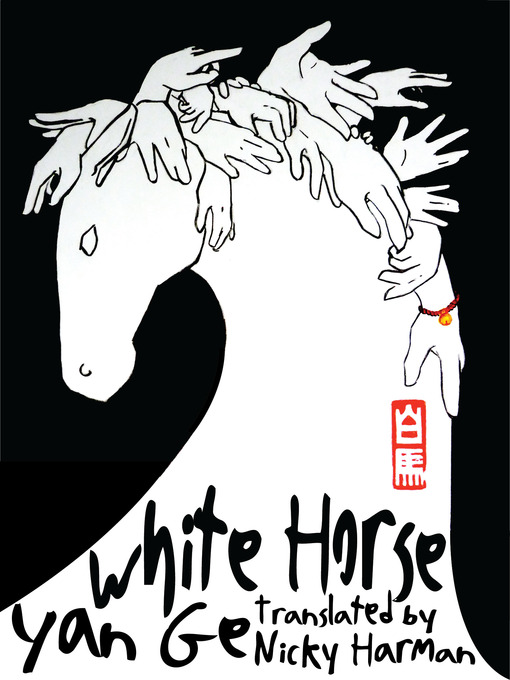 Yan Ge, White Horse (2008)
Yan Ge, White Horse (2008)
Translated from the Chinese by Nicky Harman (2014)
Published by HopeRoad Publishing (who have a particular focus on African, Asian, and Caribbean writers), White Horse is the story of Yun Yun, who watches her cousin Zhang Qing grow up and drift away to test the waters of adulthood, though her parents may not approve. Meanwhile, Yun Yun’s widowed father is seeing one of the local teachers, which will reveal further cracks in the family’s relationships. There’s a clarity to Nicky Harman’s translation which makes this novella engaging to read, but it’s the deceptive clarity of a child’s voice – one that doesn’t know or perceive everything. This is what leads into the deeper heart of Yan Ge’s tale; that and the mysterious visions of white horses that Yun Yun keeps seeing, which may represent her own growing awareness. Good stuff.
Bogdan Suceavă, Miruna, a Tale (2007)
Translated from the Romanian by Alistair Ian Blyth (2014)
When I saw this book in the shop it was shrinkwrapped, with no blurb on the back cover; so I had nothing to judge it by but the gorgeous design (hats off to Prague-based Twisted Spoon Press; it really is a beautiful object). Happily, the contents are just as good. The narrator, Trajan, recalls childhood visits to his grandfather in Evil Vale, where the old man would tell stories of family history which blurred the line with myth. Alistair Ian Blyth’s translation captures that elusive magical quality that makes Grandfather’s tales of fays and curses persuasive. But what I like most about Bogdan Suceavă’s book is how fully it dissolves the line between truth and fantasy: Trajan’s sister Miruna shares her grandfather’s affinity for the magical; so something is carried between them with the telling of the tales that Trajan can only guess at. And, as we only ever hear Trajan’s voice, how are we to know what’s real and what isn’t? Ultimately, it seems that what matters most is simply that the stories are told.
My final thoughts? I enjoyed doing this – it brought me into contact with books I might not have read otherwise, and led me to take from my shelves books I hadn’t got around to. I quite like the idea of having an occasion like this to read novellas, and I think I’ll be trying it again before long.
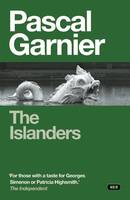
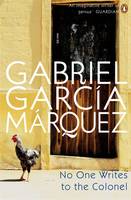
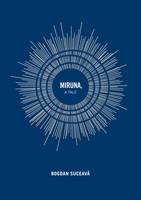
 Christopher Priest’s work has given me some of the best reading experiences I’ve ever had, so I opened The Islanders – his first novel in nine years – with no small amount of anticipation. For this book, Priest returns to the world of the Dream Archipelago, setting for a number of short stories and, in part, 1981’s
Christopher Priest’s work has given me some of the best reading experiences I’ve ever had, so I opened The Islanders – his first novel in nine years – with no small amount of anticipation. For this book, Priest returns to the world of the Dream Archipelago, setting for a number of short stories and, in part, 1981’s
Recent Comments